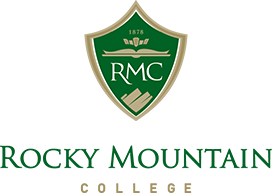What is Occupational Therapy?
April 26, 2023 2024-03-24 20:14What is Occupational Therapy?
Occupational therapy practitioners ask "What matters to you?" not "What's the matter with you?"
In its simplest terms, occupational therapists and occupational therapy assistants help people across the lifespan participate in the things they want and need to do through the therapeutic use of everyday activities (occupations). Common occupational therapy interventions include helping children with disabilities to participate fully in school and social situations, helping people recovering from injury to regain skills, and providing supports for older adults experiencing physical and cognitive changes (AOTA.org).
Where do Occupational Therapists Work?
Hospitals: Following an event requiring hospitalization, occupational therapists are an integral part of a patient’s rehabilitation. Occupational therapists collaborate with health care team professionals to encourage a successful rehabilitation process.
Schools: Occupational therapists help children of all ages accomplish academic and social success by developing interventions that promote positive student behaviors.
Long-term Care/Skilled Nursing Facilities: Occupational therapists help clients address self-care skills; work with clients on behavioral and mental health concerns; and teach clients how to use adaptive equipment, among many other duties.
Outpatient Clinics: Outpatient clinics are clinics in which clients who do not require overnight hospitalization are served. Here, occupational therapists work with clients in a variety of different capacities, including but not limited to: regaining physical modalities, implementing adaptive methods for optimal performance, developing strategies to compensate for cognitive deficits, and teaching clients how to use adaptive devices.
Home Health: Occupational therapists visit clients in their home to develop strategies for safe and successful to manage daily activities. This may include teaching clients how to modify their living environment, implement compensatory techniques, or use adaptive devices.
Academia: Occupational therapists work as professors, researchers, and directors in higher-education settings.
Early Intervention: Occupational therapists work with infants and toddlers and their families to help promote function and engagement in various areas of relevant occupation.
Community Health: Working with public health programs, occupational therapists provide a holistic, client-centered lens through which programs may better assist populations to engage in activities that are meaningful.
Mental Health: Occupational therapists provide mental health services by implementing interventions that focus on promoting function and independence
Contact
Top Floor
Charles Morledge Science Building


